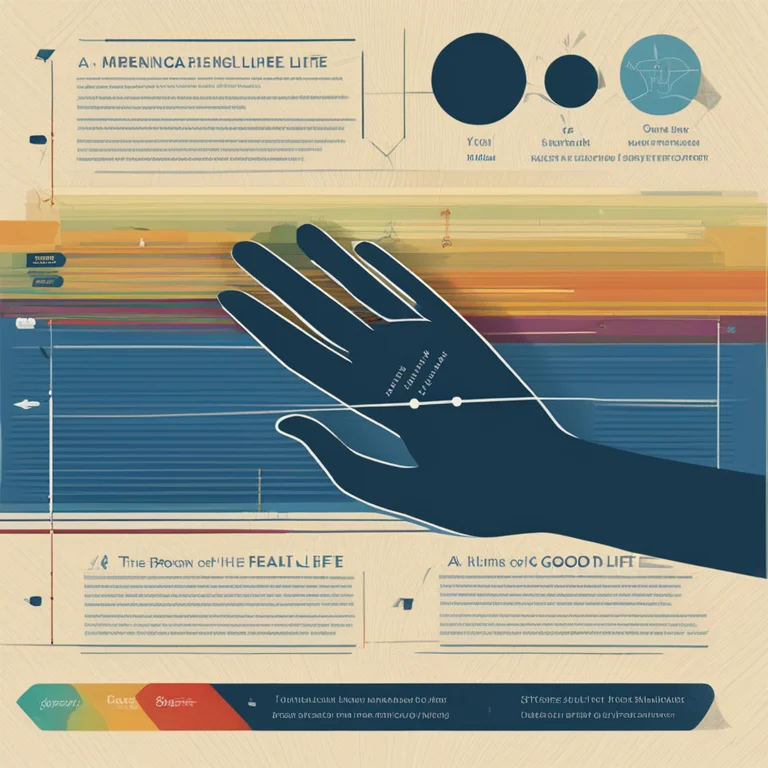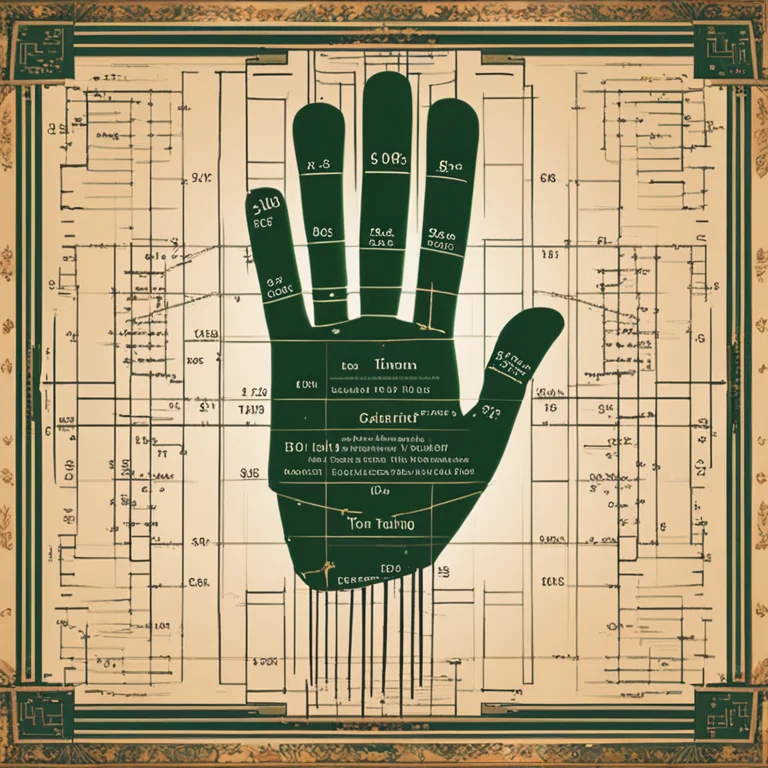
Can Palmistry Foresee One’s Demise?
Delve into the contentious debate about whether palmistry can predict the end of life and the ethical considerations of such a claim.
article by Nora Pennington
Introduction to Palmistry and Mortality
Palmistry, or chiromancy, has been practiced for centuries, offering insights into an individual's personality, life choices, and future through the analysis of the palms. But one topic sits heavily within this ancient practice: can palmistry predict death? This has been a subject of great controversy, challenging the limits of palmistic interpretations and raising ethical questions. As seekers of knowledge in the evolved landscape of 2024, we continue to peer into the folds of the human palm, searching for truths that may or may not be destined to remain a mystery.

Realms Beyond the Reach of Palmistry
While practitioners have long boasted the potential of reading one's fate from the lines and mounts of the hand, mainstream palmistry holds a consensus that predicting death is neither accurate nor responsible. Given the nuanced nature of palm lines and their propensity to change with time, the ability to foresee one's end is discredited by many contemporary palmists. In addition, ethical considerations come into play, as predetermining death can be distressing and harmful to an individual's mental well-being, causing a shift in focus toward more constructive aspects of life.

Lines of Life and Interpretative Boundaries
Typically, the lifeline on one's palm is mistakenly believed to indicate lifespan. However, most modern practitioners agree that the lifeline reflects more about life quality, vitality, and major life changes. Predicting the exact moment of death based on this or any other line is considered a palmistry myth. Instead, the lifeline's depth, length, and curvature offer a narrative on one's experiences and vitality, steering clear of morbid prophecies.

Evolution in Perspective
The narrative around death and palmistry is one that has matured considerably over the years. With advancements in both technology and psychological understanding in 2024, the focus of palmistry has largely transitioned toward life guidance and self-understanding. Modern practices encourage using palmistry as a tool for reflection, personal growth, and understanding compatibility with others, rather than for foretelling one's death.
Scientific Scrutiny and Societal Stance
Scientifically, no evidence supports the idea that palmistry can predict mortality or any other deterministic outcomes. Researchers and skeptics often point to the Forer effect, where individuals believe vague generalizations — particularly about death — to be highly accurate for them personally. Society, on the whole, has grown more attuned to the probabilistic nature of life, with individuals preferring to approach palmistry as a form of entertainment or a starting point for self-inquiry, instead of a concrete path to uncover one's destiny.
Ethical Responsibilities of Practitioners
Astute palmists of the contemporary age are bound by an ethical code, much like professionals in any field. Claims of predicting the end of one's life are not only seen as baseless but also unethical. Recognized palmistry bodies and associations have taken great strides in standardizing practices to prevent the exploitation of such fears, emphasizing the enlightening and supportive qualities of the craft. As the practice of palmistry continues to evolve, it becomes increasingly vital for practitioners to consider the impact of their readings on an individual's life.
Published: 1/11/2024
Modified: 1/11/2024
More predictions
Come back here soon to learn more about yourself and your future


The Secrets of Palmistry: Interpreting Hand Reading Lines
Delve into the fascinating world of palmistry and discover what your hand reading lines reveal about your destiny, personality, and future.


Palm Lines: A Guide to Your Hands' Secrets
Learn the art of reading palm lines with our straightforward guide. Discover what your hands reveal about your personality, destiny, and life!